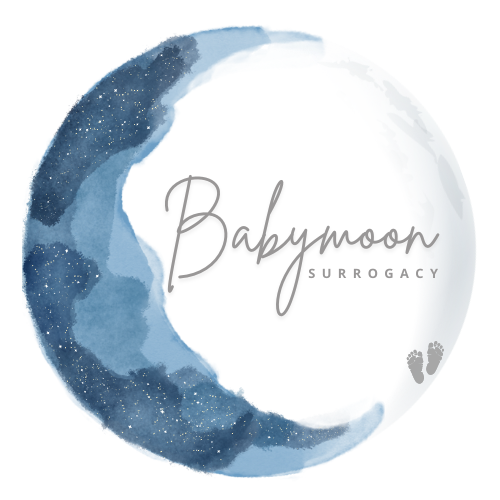Understanding the Risks of Drug Use During Pregnancy
- The Babymoon Surrogacy Team

- Oct 21
- 3 min read

Pregnancy is a time of change, hope, and responsibility. Every decision made during this period can have lasting effects not just on your own health, but on the health and development of the baby. One of the most important things to understand is the risk that drug use can pose during pregnancy. This includes prescription medications, recreational drugs or even certain over-the-counter medications.
At Babymoon Surrogacy, we’re committed to helping surrogates and intended parents navigate pregnancy safely, with access to education, resources, and support every step of the way.
How Drugs Affect Pregnancy
When drugs enter the body, they can cross the placenta, the organ that provides oxygen and nutrients to the baby. This means substances a mother uses can reach the developing fetus, sometimes in concentrations similar to those in her own bloodstream. Because a baby’s organs and nervous system are still developing, even small amounts of certain drugs can have significant and lasting effects.
Short- and Long-Term Risks for the Baby
The specific risks depend on the type of drug used, the amount, and the timing during pregnancy. However, many substances including illegal drugs, misused prescription medications, and even some herbal products are linked to:
Premature birth and low birth weight
Miscarriage or stillbirth
Birth defects, particularly involving the brain, heart, or limbs
Neonatal Abstinence Syndrome (NAS) — when babies experience withdrawal after birth
Developmental and behavioral challenges that may appear later in childhood
Some drugs also increase the risk of placental abruption, a dangerous condition where the placenta separates from the uterus too early, threatening both the pregnant person and the baby.
Commonly Misused Substances and Their Risks
Below is a list of substances and their associated risks for a pregnancy.
Opioids (Heroin, Prescription Painkillers)
Opioid use can lead to NAS, where newborns experience withdrawal symptoms such as tremors, irritability, and feeding difficulties. Opioid exposure is also linked to premature birth and growth restriction.
Cocaine and Methamphetamine
These stimulants constrict blood vessels, limiting oxygen flow to the baby. This can cause low birth weight, placental abruption, and developmental delays. Babies exposed in utero may also experience withdrawal and sleep disturbances.
Marijuana (Cannabis)
Although some view marijuana as natural, its use during pregnancy has been associated with lower birth weight, attention problems, and memory or learning difficulties in children. THC, the active compound in cannabis, crosses the placenta and can affect brain development.
Prescription and Over-the-Counter Drugs
Misusing prescription medications or using them without medical approval can be risky. Some antidepressants, sleep aids, or anti-anxiety medications may not be safe for pregnancy. Always speak with your healthcare provider before taking or stopping any medication.
Other Substances (Club Drugs, Hallucinogens, Inhalants)
These drugs can disrupt fetal development and increase risks of miscarriage, preterm delivery, or long-term neurological problems.
Health Risks for the Pregnant Person
Drug use doesn’t just affect the baby, it can also harm the pregnant individual’s health. Risks include:
Increased blood pressure and heart problems
Malnutrition and dehydration
Infections such as HIV or hepatitis (from needle use)
Mental health complications, including anxiety, depression, and addiction
Seeking Help and Support
If you or someone you know is struggling with substance use during pregnancy, it’s important to know that help is available and it’s never too late to seek it. Healthcare providers can offer safe treatment plans, including medically supervised detox programs or medication-assisted therapy.
At Babymoon Surrogacy, we believe that support and compassion are vital to every journey. Our team helps surrogates and intended parents access trusted medical and emotional resources, ensuring the health and well-being of everyone involved.
If you have questions about health, pregnancy, or surrogacy, the Babymoon Surrogacy team is here to help guide you with compassion and care.
Important: This article is for informational purposes only and does not replace medical, legal, or psychological advice. Always consult qualified professionals for personalized guidance regarding your individual circumstances.




Comments